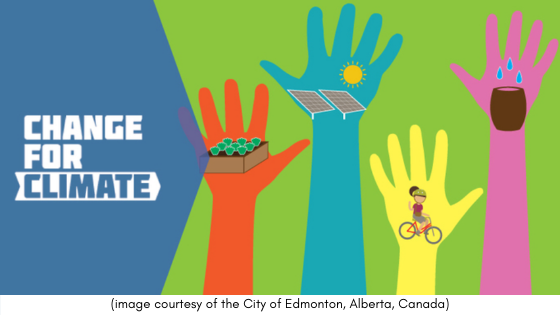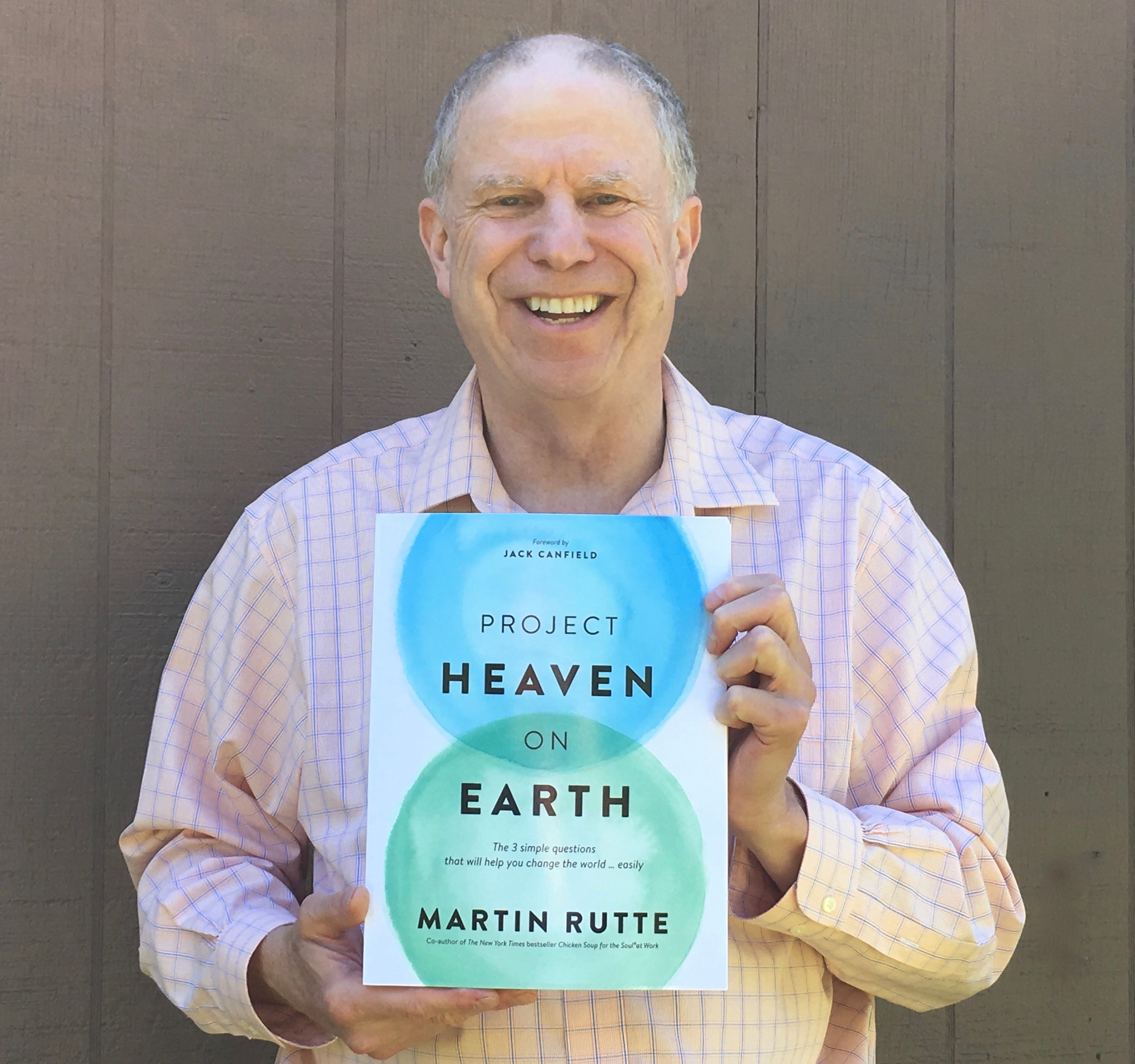Dear Heaven Maker:
I’ve been increasingly concerned about the growing number of opinions and research, from so many different groups and individuals globally, about the state of our environment.
The issue seems so large, so overwhelming.
What can one person do to actually change the direction of the world?
I recently received both of these articles, on the same day.
Please read both of them.
- They show:
- It’s not hopeless.
- There is something one person can do that will, when added with others who share the same concern, actually change the direction of our world.
- Our children are standing up and having their voices heard and counted.
- Our thought leaders are standing up and having their voices heard and counted.
- The less you do to cause climate change the more you can still suffer from it because it’s not just a ‘You’ issue, it’s an ‘Us’ issue.
- The one day strikes, initially lead by young students and now with adults joining, may take a while to catch on, just as the school students’ strikes did. But, if the momentum builds, there’s a chance that we can shift the Zeitgeist toward the quick and transformative kind of action on the environment that science demands.
- A psychologist at Penn State University led a study examining the public perception of two climate marches which took place over the course of a week in 2017 and found that bystanders who observed the demonstrations came away with the belief that protests can make people more optimistic about the possibility of affecting change.
It’s Not Entirely Up to School Students to Save the World
by Bill McKibben
published in The New Yorker on Friday, May 24th, 2019
https://www.newyorker.com/news/daily-comment/its-not-entirely-up-to-school-students-to-save-the-world
In the past several months, people around the world have watched in awe as school students, led by the Swedish teen-ager Greta Thunberg, have taken their concerns about the climate crisis to a new level, with a series of one-day strikes. The latest took place on Friday, and drew what is estimated as more than a million participants in a hundred and twenty-five countries. The strikes have been the biggest boost yet for the global climate movement, galvanizing public attention by reminding people just who will have to deal with the mess that older generations have created.
Thunberg has spoken to the Pope and to the British and European parliaments—and this week she and her fellow student leaders are speaking to everyone else who’s older than them.
On Thursday, they issued an appeal to adults to take up the same tactic, and on Friday a number of them responded, with a letter pledging to organize the first of a series of all-ages, one-day climate strikes, on Friday, September 20th. (I was among them and helped draft the letter.) The initial list of signees is composed of a wide array of, well, adults, from around the world. Some have spent their lives trying to make change from within the system, such as Christiana Figueres, the United Nations diplomat who served as the lead negotiator of the Paris climate accords. Others are writers (Margaret Atwood, Barbara Kingsolver), scientists (Tim Flannery, of the University of Melbourne; Katharine Hayhoe, of Texas Tech), trade-union leaders (Sharan Burrow, the general secretary of the International Trade Union Confederation), and indigenous leaders from Australia (Anne Poelina) to America (Tom B. K. Goldtooth) and the Arctic (Jenni Laiti).
What all of these people have in common is a strong sense that business as usual has become the problem, and that it needs to be interrupted, if only for a day. The climate crisis is a perplexing one because, mostly, we just get up each day and do what we did the day before, as if an enormous emergency weren’t unfolding around us. That hasn’t been true of past crises: during the Second World War, oceans may have separated American civilians from the fighting, but every day they were aware of the need to change their ways of life: to conserve resources, buy bonds, black out their windows at night if they lived on the coast.
The climate emergency, however, is deceptive. Unless it’s your town that day that’s being hit by wildfire or a flood, it’s easy to let the day’s more pressing news take precedence. It can be hard to remember that climate change underlies so many daily injustices, from the forced migration of refugees to the spread of disease. Indeed, the people who suffer the most are usually those on the periphery—the iron law of climate change is that the less you did to cause it the more you suffer from it. So we focus on the latest Presidential tweet or trade war instead of on the latest incremental rise in carbon dioxide, even though that, in the end, is the far more critical news.
A one-day work stoppage—a decision to spend a day demanding action from governments or building a bike path—is a way to break out of that bad habit. It gives people a chance to do the hard but necessary work of talking about an issue of paramount importance with their co-workers and bosses. And here’s my prediction: if you do, you’ll be surprised how many of those co-workers and bosses are grateful for the chance to do something. The trouble with global warming is not that people don’t care—indeed, polling shows that people care a great deal. But the crisis seems so big, and we seem so small, that it’s hard to imagine that we can make a difference.
In previous social movements, other institutions have been key: the African-American church, for instance, was the heart and soul of the civil-rights movement. But we live in an age when work defines our lives, so work is a crucial place to organize. In the past few weeks, employees at Amazon have brought together thousands of their co-workers to demand that the company reduce its carbon footprint. That kind of organizing is daunting, because it means confronting the boss. A one-day climate strike may be easier—you just have to tell your boss that you’ll be elsewhere that day. Or you could ask her to go along, too.
Obviously, it’s not that simple for everyone: some bosses would fire you; too many people can’t live without a day’s wages; and firefighters can’t very well take a day off. That just increases the urgency for people who can act. The strikes may take a while to catch on, just as the school students’ strikes did. But, if the momentum builds, there’s a chance that we can shift the Zeitgeist toward the quick and transformative kind of action that science demands. We need to try. There’s something fundamentally undignified about leaving our troubles to school kids to resolve. It’s time for the elders to act like elders.
Bill McKibben, a former New Yorker staff writer, is a founder of the grassroots climate campaign 350.org and the Schumann Distinguished Scholar in environmental studies at Middlebury College. His latest book is Falter: Has the Human Game Begun to Play Itself Out?
As Millions March to Demand Climate Action, Research Reveals Protests Make People More Optimistic About Affecting Change
by Julia Conley
published on Commondreams.org on Friday, May 24th, 2019https://www.commondreams.org/news/2019/05/24/millions-march-demand-climate-action-research-reveals-protests-make-people-more
As an estimated 1.8 million people in 125 countries took part in a global climate strike Friday, researchers delivered good news about such protests: they work.
A psychologist at Penn State University led a study examining the public perception of two climate marches which took place over the course of a week in 2017 and found that bystanders who observed the demonstrations came away with the belief that protests can make people more optimistic about the possibility of affecting change.
“Marches serve two functions: to encourage people to join a movement and to enact change,” lead author Janet Swim said in a statement. “This study is consistent with the idea that people who participate in marches can gain public support, convince people that change can occur, and also normalize the participants themselves.”
Supporters of recent climate strikes that have taken place all over the world were buoyed by the findings.
Swim focused her research on the March for Science and the People’s Climate March, both of which took place in April 2017 as the scope of the Trump administration’s attack on climate science was becoming clear.
As the researchers asked survey participants about their impressions of the marches before and after they took place, they found that observers were more likely to have positive views of protesters and of people’s ability to work together to fight the climate crisis.
Although researchers found that some participants had expressed negative views of protesters in general before the marches, after the People’s Climate March they were less likely to view marchers as “arrogant or eccentric or otherwise outside of the norm,” Swim reported.
Observers who said they consumed news via conservative sources had more “collective efficacy beliefs” after the marches, meaning they were more likely to believe that collective action could be effective and to have plans to participate in protests themselves.
The research was released as students and workers around the world were taking part in thousands of demonstrations in the second global climate strike since March.
Recent mass climate action demonstrations have supported the beliefs of participants in Swim’s study, that collective action can affect change.
Weekly climate marches in countries around the world, led by 16-year-old organizer Greta Thunberg, helped secure a pledge from European Commission president Jean-Claude Juncker to spend a quarter of the European Union’s budget on combating the climate crisis starting in 2021.
The governments of Scotland, Wales, England, and Ireland also declared climate emergencies over the course of a few days after the global grassroots movement Extinction Rebellion occupied landmarks in April to demand that lawmakers “tell the truth” about the climate crisis.


 Martin Rutte
Martin Rutte




